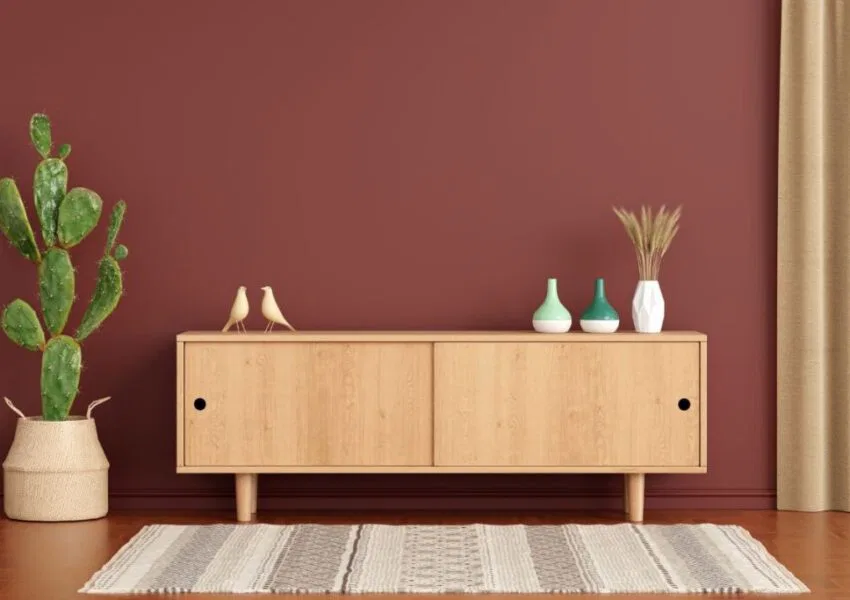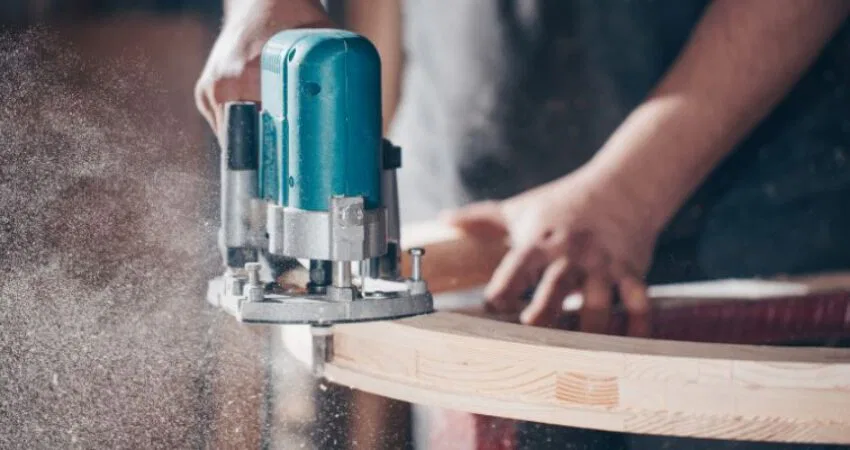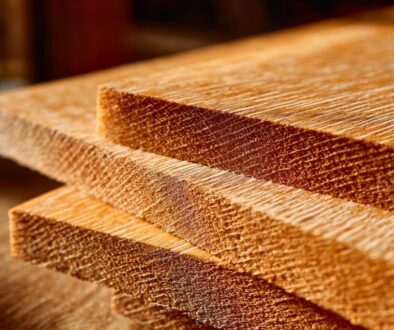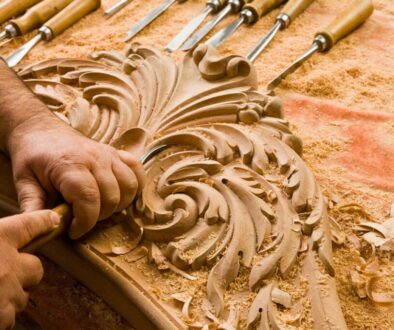The Pros and Cons of Using Rubberwood for Furniture

Published January 9, 2025
Looking for furniture that’s stylish, affordable, and eco-friendly? Rubberwood, also known as parawood, might just be the perfect solution. Rubberwood is sustainable, stylish, and affordable. Unsurprisingly, it’s a top choice for modern furniture and decor. Why settle for materials that harm the planet when you can choose one that looks great and feels even better?
In this article, we’ll explore everything you need to know about rubberwood, specifically the pros and cons of rubberwood for furniture.
What Is Rubberwood?
Rubberwood, or plantation hardwood, comes from the Pará rubber tree (Hevea brasiliensis). It’s a sustainable material and a byproduct of latex production. Trees are harvested after their latex cycle ends, usually at 25-30 years, making rubberwood an eco-friendly choice.
Rubberwood is strong, lightweight, and affordable. It’s a medium-density hardwood with a fine, dense grain. Its smooth texture makes it perfect for furniture, flooring, and decor.

Applications Of Rubberwood
Rubberwood is the ultimate multitasker in the world of materials, bringing style and function to a wide range of products:
- Furniture. From elegant dining tables and cozy chairs to sturdy bed frames, bookshelves, and entire living room sets, rubberwood has you covered.
- Kitchenware. Think cutting boards, utensils, and everyday essentials that blend practicality with charm.
- Decorative items. Beautiful trays, ornaments, and unique accessories add personality to any space.
Rubberwood effortlessly fits into modern, rustic, and traditional styles with its naturally light color and ability to take on various finishes. No wonder it’s a favorite for creating functional pieces and eye-catching decor.
Pros Of Rubberwood For Furniture
Rubberwood is a rising favorite for furniture, and it’s easy to see why. Durable, affordable, and eco-friendly, it comes from rubber trees repurposed after their latex production ends. This sustainable hardwood creates beautiful, functional pieces. But what are the pros and cons of rubberwood for furniture?
Curious if rubberwood is the right fit for your home? Let’s first dive into the pros and see if it’s the right fit for your home.
Sustainability
Rubberwood, like reclaimed wood, is a sustainable resource, as it’s harvested from rubber trees that are no longer productive for latex. Its reuse reduces waste and promotes eco-friendly practices.
Durable
Although not as robust as wood like oak, rubberwood has moderate density and holds well to daily use. Under proper care, it resists wear and tear, allowing furniture to last for years.
Cost-Effective
Compared to traditional hardwoods, rubberwood is budget-friendly without compromising on quality. This makes it an excellent option for stylish yet affordable furniture.
Versatility
Its light hue and fine grain allow it to adapt to various finishes, stains, and designs, fitting seamlessly into all interior styles.
Low Maintenance
Rubberwood furniture requires minimal upkeep. Regular polishing and appropriate cleaning can retain its beauty for many years, and maintenance is easier than that of certain hardwoods.
Cons Of Rubberwood For Furniture
Rubberwood is loved for being affordable and eco-friendly, but it’s not all perfect. Before choosing it for your furniture, consider the downsides.
Lower Durability
Rubberwood isn’t as durable as denser hardwoods like maple, oak, or mahogany. It may not be the best choice for furniture exposed to heavy wear and tear.
Moisture Sensitivity
Rubberwood absorbs moisture quickly, which can lead to warping or swelling if not treated or sealed correctly. Therefore, it’s better suited for indoor use than outdoor furniture.
Heat Sensitivity
Direct contact with hot objects can damage rubberwood, leaving burns or discoloration.
Availability
Rubberwood is popular in some regions but less common elsewhere. It may not be as available as other types of hardwood, potentially limiting your options.
Need For Treatment
Rubberwood often requires chemical treatment to ward off fungi or insects, which adds an extra processing step.
Trigger Latex Allergies
Processed rubberwood contains minimal latex. However, it can still trigger allergies in sensitive individuals.
Frequently Asked Questions
Is rubberwood safe?
Rubberwood is not toxic, making it a safe choice for most people. However, since it comes from latex-producing trees, individuals with severe latex allergies should be cautious. When properly treated and processed, rubberwood poses no significant risks.
How should I maintain rubberwood furniture?
To maintain its appearance, clean it regularly with a soft, damp cloth and mild cleansers. Wipe up spills quickly to avoid moisture. Apply a protective finish or seal to prevent stains and humidity.
Is it possible to stain rubberwood?
Rubberwood is highly versatile and takes stains exceptionally well. You can highlight its natural grain or create a rich, darker finish. It works well with staining, lacquering, or painting, making it a great choice for many design styles.
What’s the difference between rubberwood and MDF?
Rubberwood is genuine, solid wood sourced from rubber trees. It is prized for its durability and natural aesthetic, making it an excellent choice for furniture. In contrast, MDF (Medium-Density Fiberboard) is an engineered wood composed of wood fibers and resin. While MDF is typically more affordable, it falls short in durability compared to rubberwood.

Why Rubberwood Might Be The Perfect Fit For Your Home
Rubberwood offers quality, affordability, and sustainability. It’s a top choice for furniture design. Its light color and smooth grain are significant advantages. The eco-friendly origins add to its appeal. However, when evaluating the pros and cons of rubberwood for furniture, it’s worth noting that it lacks the strength of denser hardwoods. Still, its lower cost and versatility often outweigh these minor drawbacks. By choosing rubberwood, you get stylish, functional furniture while making a positive environmental choice.
Hire The Timber Experts For Your Next Project
Vintage & Specialty Wood should be your source of the highest quality timbers from around the world. When it comes to fabricating and installing reclaimed wood or specialty wood products in your home, we don’t cut corners. We offer many reclaimed wood and specialty wood products such as Douglas Fir, white oak, and much more. We also offer timber framing and wood flooring services as well. Contact our team today to speak to a timber expert about what Vintage & Specialty Wood can do for you.

This Blog Is Fact Checked
This content has undergone meticulous fact-checking by our team of internal experts. Gain a deeper understanding of the high editorial standards we uphold on our website here.

About The Author
Experience, exploration, and knowledge are the hallmarks of writer Rei Bayucca. Her dedication to crafting articles that both inspire and educate will leave you thinking long after you’ve finished reading.




